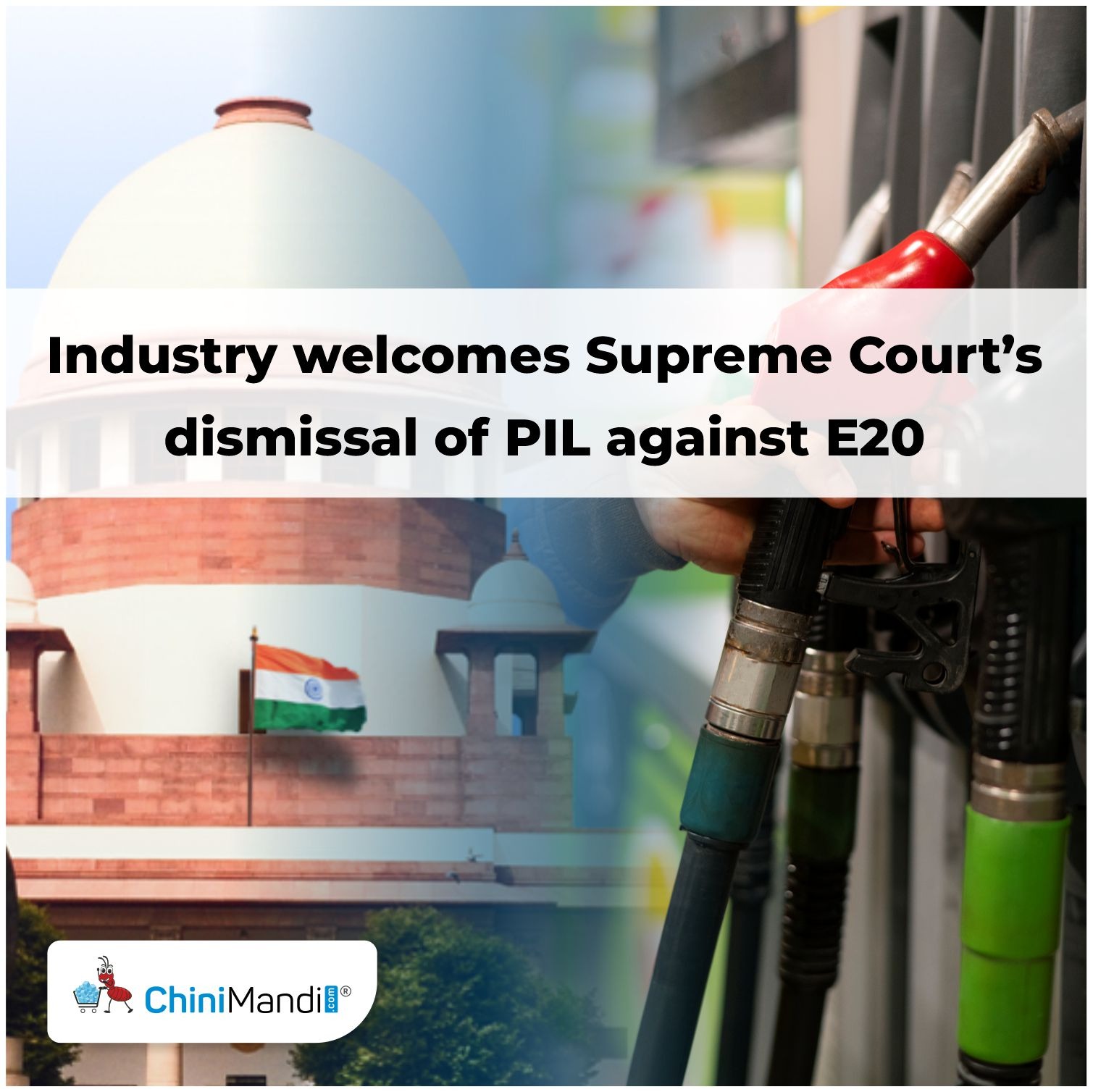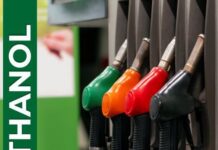The Supreme Court’s dismissal of a public interest litigation (PIL) challenging 20% ethanol-blended petrol (E20) has been welcomed by the sugar and ethanol industry, which views the move as a major boost to the government’s ethanol blending programme. Industry leaders also said that social media campaigns against ethanol would likely subside following this decision.
On Monday, September 1, 2025, the Supreme Court dismissed a petition challenging the nationwide rollout of 20% ethanol-blended petrol (E20), which alleged that millions of motorists were being compelled to use fuel unsuited to their vehicles, without the option of ethanol-free petrol. A Bench comprising Chief Justice of India (CJI) B.R. Gavai and Justice K. Vinod Chandran refused to entertain the petition after the Union government defended the ethanol blending programme as a measure to bolster the income of sugarcane farmers and conserve foreign exchange.
Atul Chaturvedi, Executive Chairman of Shree Renuka Sugars, said, “Hopefully with Supreme Court dismissing the PIL, social media activism against ethanol should come to an end. It’s a welcome decision and should give Government the required confidence to push the ethanol programme in the country. The long awaited price increase for cane juice and B-Heavy ethanol may also become a reality. With a big crop shaping up sugar industry should be in a position to divert 5 million tons of sugar for ethanol. Hopefully all this augurs well for sugar stakeholders.”
Echoing similar views, Munish Madan, Managing Director of The Catalysts Group, leading biotechnology company in the country, providing biotech solutions to ethanol producers, said the decision brings much-needed relief to the sector. “Today’s decision by the Supreme Court is a big relief to every stakeholder who is involved with ethanol. The Ethanol Blending Programme is a transformative national goal towards energy self-reliance. Considering the high pollution levels in our cities, EBP is the need of the hour, which has multiple other benefits. The apex Court was right in mentioning the benefits that the programme has towards the farmers, and thats of paramount interest for all of us.”
Deepak Ballani, Director General of the Indian Sugar and Bio-energy Manufacturers Association (ISMA), highlighted the economic and environmental gains of the blending programme. He said, “ISMA welcomes the Supreme Court’s dismissal of the PIL challenging the E20 ethanol blending policy. The Court’s decision confirms that E20 will continue as planned, reinforcing India’s campaign for cleaner fuels. Achieving a 20% blending target five years ahead of schedule has had a transformative impact: over ₹1.18 lakh crore paid to farmers, ₹1.36 lakh crore in foreign exchange savings, and a reduction of 698 lakh tonnes of CO₂ emissions. This milestone underscores the policy’s benefits for farmers, the economy, and the environment, and highlights India’s commitment to a sustainable energy transition.”
Attorney General for India R Venkataramani opposed the petition saying that the petitioner was only a “name-lender” and that there was a huge lobby behind him. He asserted that the Government has framed the policy after considering all aspects. AG said that the policy was benefiting India’s sugarcane farmers. “Will people outside the country dictate what kind of fuel India should use?”, AG stated. After the AG’s submission, the CJI pronounced, “Dismissed.”
The Government’s Ethanol Blended Petrol (EBP) Programme is aimed at multiple goals, including enhancing environmental sustainability, reducing dependency on crude oil imports, saving foreign exchange, and supporting the domestic agricultural economy. As a result of this initiative, more than ₹1.25 lakh crore has been paid to farmers from Ethanol Supply Year (ESY) 2014–15 up to July 2025. Additionally, the programme has saved over ₹1.44 lakh crore in foreign exchange, reduced carbon dioxide emissions by approximately 736 lakh metric tonnes, and replaced over 244 lakh metric tonnes of crude oil.
Progress under the EBP Programme has been significant. Public Sector Oil Marketing Companies (OMCs) achieved 10% ethanol blending in petrol ahead of schedule in June 2022 (during ESY 2021–22). This figure rose to 12.06% in ESY 2022–23, 14.60% in ESY 2023–24, and reached 19.05% by July 31, 2025, in the current ESY 2024–25. Notably, blending touched 19.93% during July 2025 alone.
In that month, OMCs procured 85.3 crore litres of ethanol under the programme, bringing total procurement to 722.7 crore litres from November 2024 to July 2025. Blending data shows that 87.9 crore litres of ethanol were blended into petrol in July 2025, pushing the cumulative ethanol blending volume to 749 crore litres during the same period.


















